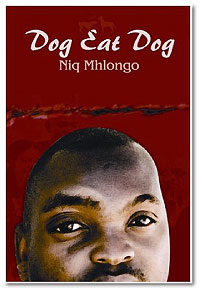Dingamanzi Makhedama is a young black student at the University of Witwatersrand in 1994, as South Africa is making its post-Apartheid transition. Dingz as he is popularly known hails from a poverty-stricken family, whose mother single-handedly supports nine children. Struggling with money, partying with his friends, picking up girls, skipping lectures, making up elaborate excuses for missing exams is the story of his life. A bright, articulate guy, Dingz and his circle of friends sit around drinking and discussing current affairs, which were then in South Africa, Aids, racism, politics and history while being kidnapped by taxi-drivers, contracting gonorrhea or trying to fake a death certificate.


Dingamanzi Makhedama is a young black student at the University of Witwatersrand in 1994, as South Africa is making its post-Apartheid transition. Dingz as he is popularly known hails from a poverty-stricken family, whose mother single-handedly supports nine children. Struggling with money, partying with his friends, picking up girls, skipping lectures, making up elaborate excuses for missing exams is the story of his life. A bright, articulate guy, Dingz and his circle of friends sit around drinking and discussing current affairs, which were then in South Africa, Aids, racism, politics and history while being kidnapped by taxi-drivers, contracting gonorrhea or trying to fake a death certificate.
He drinks and carouses and fools around, and misappropriates money from his family, and manages to have a pretty good time most of the time. He enjoys youthful liberties without worrying too much about the consequences except, of course, that he lives in Soweto.
Dingz doesn’t take his studies particularly seriously, for one thing and his bad temper does not help things either though occasionally his cutting ahead of the queue and bribing the proper person does bring results. And he does understand at least the local criminal hierarchy, paying off those who can and would do him harm. Dingz’s is still in a world where excuses seem easier than taking responsibility like avoiding using a condom in the heat of the moment, getting a death certificate to be excused from taking an exam.
Dingz’s life is a reflection of how unsettled and uncertain South African conditions were in the transition to a post-Apartheid world. Racism barely figures in the novel, but there are some clashes of cultures like how other black students from other African countries taking advantage of the higher South African educational standards instead of local students. Most of all, however, Dingz, like many youths, is trying to get a handle on how South Africa works.
Overall, this is an authentic, witty slice-of-life set at the time of the first democratic elections, full of interesting perceptions and vivid descriptions, and well-drawn and believable characters. Dingz himself is an interesting and plausible chap, his cynicism in using the race card is amusing but still with all his weakness the character remains cunning.
In Dog Eat Dog, Mhlongo manages to portray an intriguing but interesting view of post apartheid South Africa from a young educated poor black man’s view and succeeds immensely while at it.
Ends


